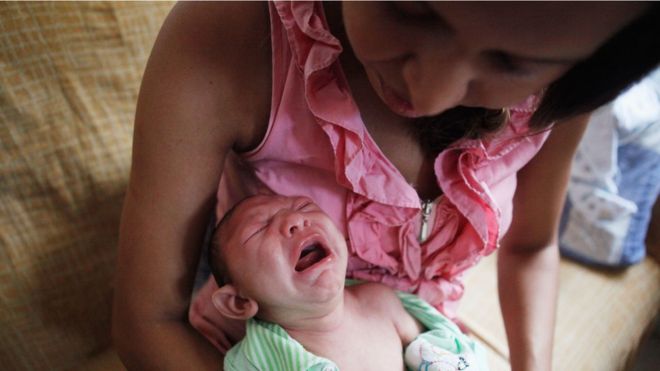Active Zika virus has been detected in the saliva and urine of patients, Brazilian scientists say.
The finding does not mean the virus can be readily transmitted through the bodily fluids.
The main method of infection is via mosquito bites, but scientists are investigating all other possibilities.
While Zika infection is normally mild, it has been linked to thousands of suspected birth defects.
Traces of Zika have been detected in other bodily fluids in a previous outbreak in French Polynesia, but the Brazilian authorities say this is the first time “active” virus has been detected.
Paulo Gadelha, the head of the Fiocruz Institute which is part of the Ministry of Health, said: “The presence of the active Zika virus has been found in saliva and urine.
“But that does not mean there is a capacity for transmission through saliva and urine.”
The potential risk of transmission through bodily fluids was highlighted in the US where the Centers for Disease Control believe a case was spread through sex.
However, there have been only two suspected cases of sexual transmission of Zika.
Prof Jonathan Ball, a virologist at the University of Nottingham, told the BBC: “Because we can detect a virus in a particular body fluid it does not mean that it will become an important source of virus for transmission to humans.
“At the peak of virus replication in the blood, virus can often be detected in other body fluids, but the levels of virus are often much lower and there is no obvious or efficient means for the virus to get from that bodily fluid into another person’s bloodstream.”
The risks of different modes of infection are still unclear.
But experts say that the million-plus suspected cases in the Americas have been contained to areas where the mosquito is found, suggesting it does not spread easily through other means.
Brazil has seen 4,783 suspected cases of babies born with small brains, although only 404 have been confirmed, 709 have been rejected and 3,670 are still being investigated.
BBC
 Q FM Africa's Modern Radio
Q FM Africa's Modern Radio
